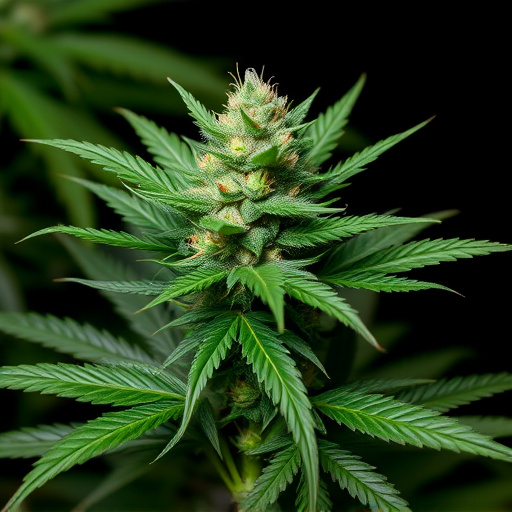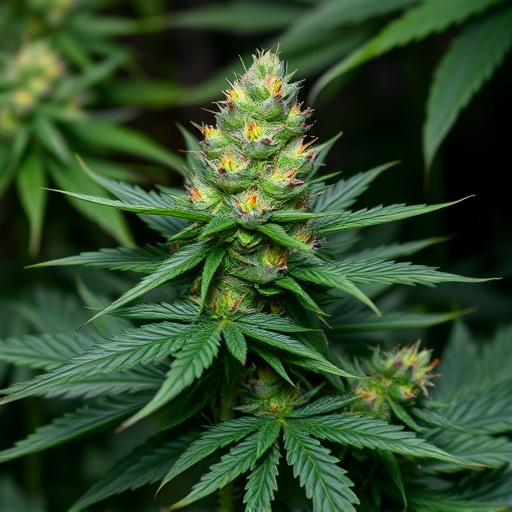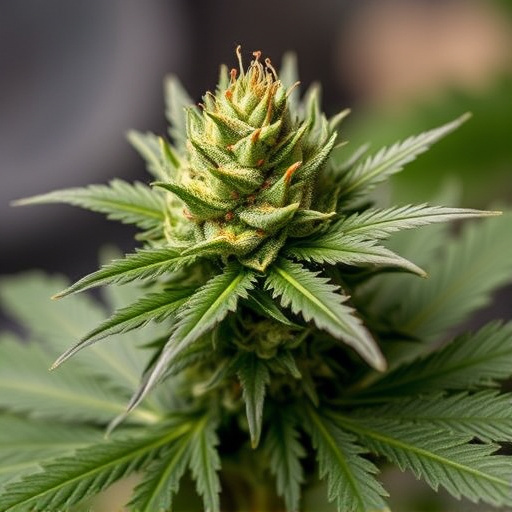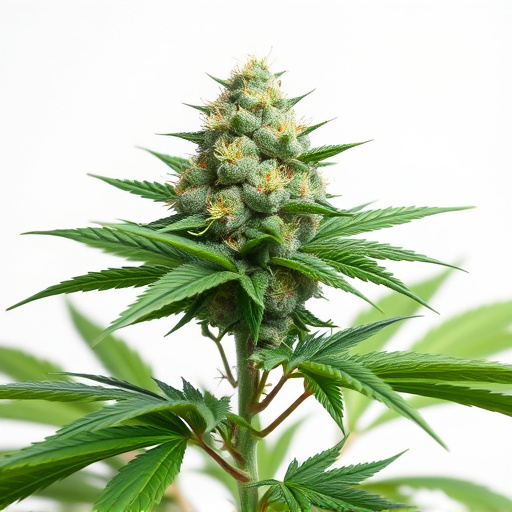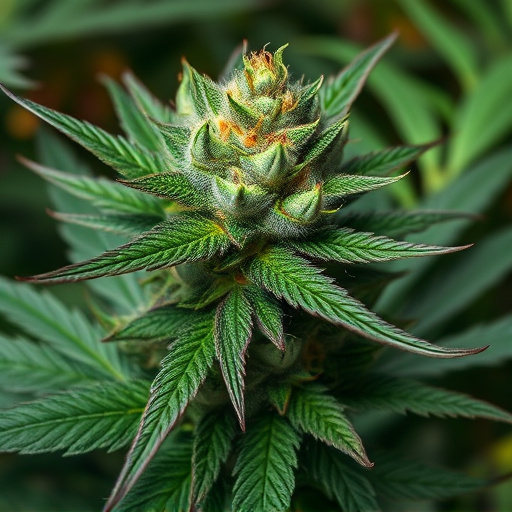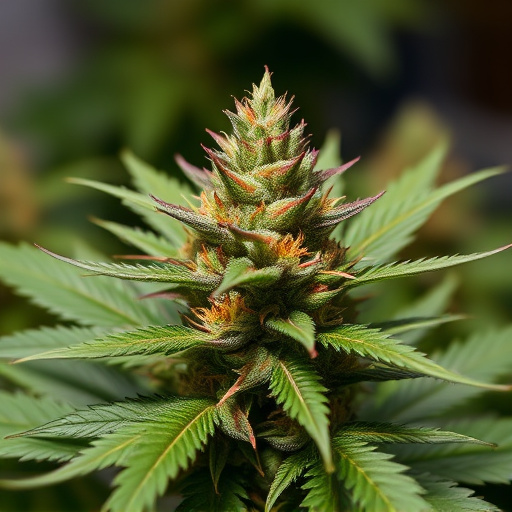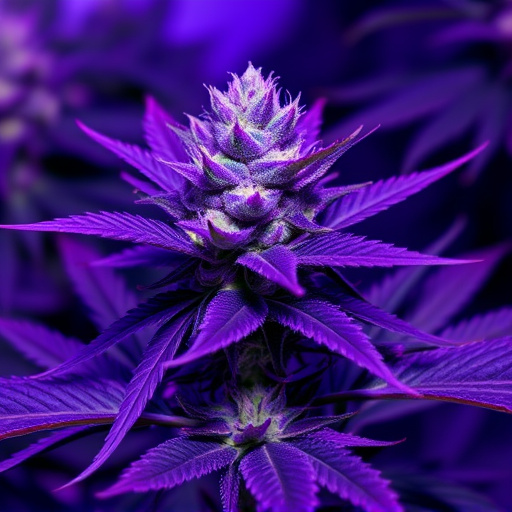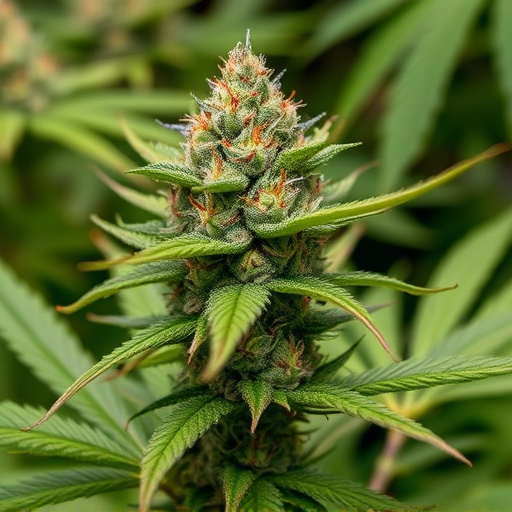Potent cannabis strains contain cannabinoids (e.g., THC, CBD) that interact with brain neurotransmitters dopamine and serotonin, influencing motivation, reward, and mood. These interactions lead to diverse effects, from pleasure sensations to potential anxiety reduction. Understanding the specific cannabinoid profiles in potent strains is crucial for navigating their impact on neurotransmitter regulation, offering therapeutic benefits while mitigating risks of prolonged use.
Unravel the intricate relationship between cannabis and our brain’s chemical messengers, dopamine and serotonin. This article delves into the complex dynamics of how cannabis affects these neurotransmitters, offering insights into its impact on mood, pleasure, and reward. From understanding the fundamental roles of dopamine and serotonin to exploring the effects of various potent cannabis strains, this guide provides a comprehensive look at the science behind these interactions.
- Understanding Dopamine and Serotonin: The Brain's Chemical Messengers
- Cannabis and Its Impact on Neurotransmitter Levels
- Exploring Potent Cannabis Strains: Effects on Dopamine and Serotonin Regulation
Understanding Dopamine and Serotonin: The Brain's Chemical Messengers
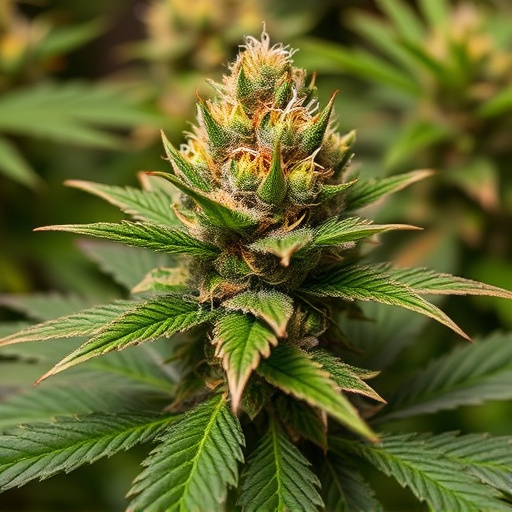
Dopamine and serotonin are neurotransmitters, chemical messengers in your brain that play a crucial role in various functions, from motivation and reward to mood regulation. These chemicals help transmit signals between nerve cells, influencing everything from our daily routines to emotional responses.
Potent cannabis strains contain compounds called cannabinoids that interact with these neurotransmitters. When you consume cannabis, these cannabinoids bind to receptors in your brain that are designed to receive dopamine and serotonin, potentially altering their usual balance. This interaction can lead to the diverse effects often associated with cannabis use, including heightened pleasure, increased motivation, and changes in mood—all influenced by these key brain chemicals.
Cannabis and Its Impact on Neurotransmitter Levels
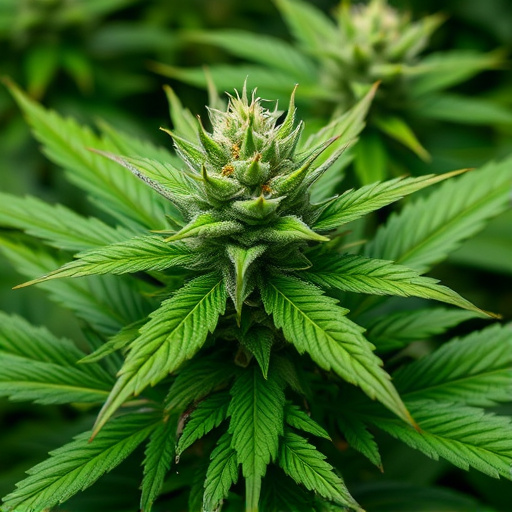
Cannabis, known for its diverse effects on the mind and body, significantly influences neurotransmitter levels in the brain, particularly dopamine and serotonin. These neurotransmitters play pivotal roles in regulating mood, pleasure, motivation, and cognitive functions. When an individual consumes cannabis, especially potent cannabis strains, it interacts with the endocannabinoid system (ECS), a complex network of receptors and molecules that modulate various physiological processes.
The ECS’s primary function is to maintain balance or homeostasis within the body. Cannabis compounds, such as tetrahydrocannabinol (THC) and cannabidiol (CBD), can mimic or modulate endocannabinoid activity. THC, for instance, binds to cannabinoid receptors (CB1 and CB2), potentially enhancing dopamine release in reward-related areas of the brain, which contributes to feelings of pleasure and euphoria. On the other hand, CBD may interact with serotonin receptors, influencing mood regulation and cognitive processes. This complex interplay can result in a range of effects, from heightened sensitivity to altered perceptions, offering insights into how cannabis affects our neural chemistry.
Exploring Potent Cannabis Strains: Effects on Dopamine and Serotonin Regulation
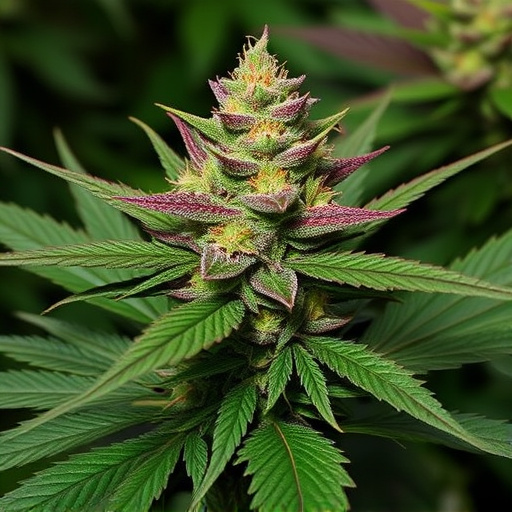
Exploring potent cannabis strains reveals a complex interplay with dopamine and serotonin, two key neurotransmitters that regulate mood, pleasure, and motivation. These strains contain various cannabinoids, most notably THC (tetrahydrocannabinol) and CBD (cannabidiol), which can modulate the activity of these neurotransmitter systems. High-THC strains, for instance, have been shown to increase dopamine release in the brain’s reward centers, leading to heightened pleasure sensations. However, prolonged exposure to high THC levels can also desensitize these receptors over time, potentially affecting long-term mood regulation.
On the other hand, CBD has gained attention for its potential to support serotonin balance. Research suggests that CBD may enhance serotonin availability by interacting with serotonin transporters, which are responsible for reabsorbing this neurotransmitter after it’s released. This interaction could contribute to improved mood and reduced anxiety. Thus, understanding the specific cannabinoid profiles within potent cannabis strains is crucial for navigating their effects on dopamine and serotonin regulation, offering potential therapeutic benefits while mitigating risks associated with prolonged use.
In understanding how cannabis affects dopamine and serotonin, we uncover a complex interplay that contributes to its diverse effects on the mind. The exploration of potent cannabis strains has revealed their potential to modulate neurotransmitter levels, offering both therapeutic benefits and considerations for responsible use. As research continues, a deeper knowledge of these chemical messengers and their interaction with cannabis can foster informed decisions regarding its application in various treatments.
